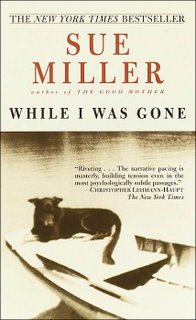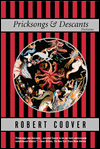
Ah yes. Our infamous friend Mr. Henry David. All of us have heard the name and perhaps a well-known quote or two ("suck the marrow" and all that) but few of us have actually read his tome to rural simplicity and individual development. Outside the classroom, that is. Herein was my problem. I have read such thick and meaningful books in a school setting. Something about the deadlines and mandatory discussions makes the pages flip regularly if not speedily. On my own, however.... Sigh.
I am still on page 172 out of 303. And it has been almost three weeks. No, no. It has been three weeks. If you take a look at the speed I normally read, you will see how arduous this has become. I finished all of the other books I had out on loan from the library in an effort to focus on my Thoreau. I figured I should apply some of the author's principles--I would take away all distractions in order to expand my mind and improve myself. I would forego the easy pleasure of modern life (i.e. entertaining novels) and seclude myself with something that would possibly change my life. Didn't work. Instead of turning to
Walden when I needed a reading fix (usually two or three times a day), I glanced at it, sighed, and turned on the television.
Being a lover of literature and a aspiring author, I feel it is my duty to read such classics. Who am I to hope to add to literary history if I cannot appreciate those who came before. My effort will karmically be rewarded when, 150 years from now, some future reader will laboriously try to read my books, struggling over my antiquated slang and phrases. I agree that:
"A written word is the choicest of relics. It is something at once more intimate with us and more universal than any other work of art. It is the work of art nearest to life itself. It may be translated into every language, and not only be read but actually breathed from all human lips; -not be represented on canvas or in marble only, but carved out of hte breath of life itself."Is the book that bad that I couldn't finish it? you ask. I never said it was bad. It was very, very good in ways. Deep, touching and meaningful. A few pages of deep, touching and meaningful without a story, however, is an excellent generic form of Ambien. I must say that Mr. Henry was a very interesting fellow. He walked away from the urban life he knew (partially because the tax man was on his ass). He "squatted" on piece of unclaimed land--as if that is anywhere near possible anymore--and built a little house for exactly $28.12 1/2 (he includes an itemized table). The book goes on as an isolated man's journal, divided into sections based upon the theme of the musings i.e. the ponds, the village, the bean fields, winter animals, etc.
Being a bit of an introvert myself, I love Thoreau's escapists spirit:
"Society is commonly too cheap. We meet at very short intervals, not having had time to acquire any new value for each other. We meet at meals three times a day, and give each other a new taste of that old musty cheese that we are. We have to agree on a certain set of rules, called etiquette and politeness, to make this frequent meeting tolerable, and that we need not come to open war. We meet at the post-office, and at the sociable, and about the fireside every night; we live thick and are in each other's way, and stumble over one another, and I think that we thus lose some respect for one another. Certainly less frequency would suffice for all important and hearty communications... The value of a man is not in his skin, that we should touch him."I was drawn towards the journey of solitude and contemplation, where only the amount of time necessary to remain living is devoted to work and the rest to contemplation, reading and writing. Lord, what a life! Though Mr. Henry delivers this, he also added a spin I didn't expect, this upbeat and positive attitude of "Yay humanity!" where I was expecting "Hey humanity! See you later, sucker!" He says he appreciates his fellow men more at a suitable remove yet also claims that his journey is not an "ode to dejection" but instead an attempt to wake up those around him, enlightening them to his point of view. To me, this is the same as finding the perfect isolated and undiscovered beach and then going home to tell all your friends about it, inviting them to come on down next time around. Screw that. Okay, that's a bit bitchy. I guess I would say to my friends, "Having a beach is great but, then again, some prefer the mountains. Either way, find your own specific chunk of nirvana and hike away from my Walden, okay?"
I want to finish this book. I will finish this book. I want to use this book as background in a character sketch for a story I have been working on. Therefore, the library will just have to wait to get it back until I find the isolated days, weeks and months I will need to finish it. They will have to deal with a few dogeared pages.
As for isolating it with no other books on my plate, well, that ain't going to work for me. I have already started the joyous ride of
Pricksongs and Descants by Robert Coover. Stay tuned for that discussion next episode. Same time. Same station.
 In my last post, I described Aimee Bender's work as a delicious cheesecake that I rationed out in order to make the pleasure of the reading last. Since I am all keen on the food analogies, then, I feel that Every Inch of Her would be more like a bag of potato chips or of movie popcorn. Also tasty, quick and easy to consumer but also high in fat and leaving you with a feeling you need something a bit more substantial in your gullet for supper.
In my last post, I described Aimee Bender's work as a delicious cheesecake that I rationed out in order to make the pleasure of the reading last. Since I am all keen on the food analogies, then, I feel that Every Inch of Her would be more like a bag of potato chips or of movie popcorn. Also tasty, quick and easy to consumer but also high in fat and leaving you with a feeling you need something a bit more substantial in your gullet for supper. 




